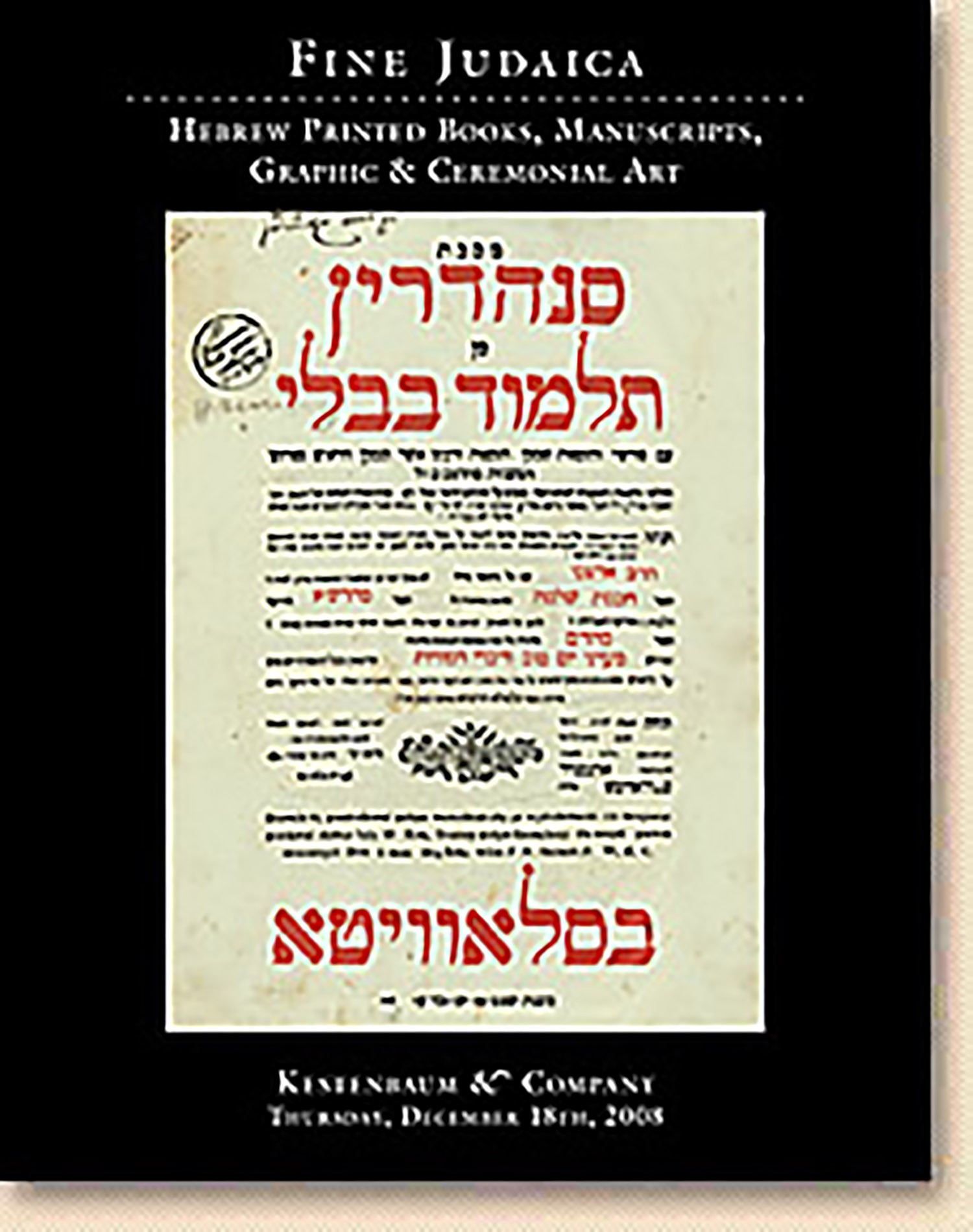RaLBaG). Milchamoth Hashem [“Wars of the Lord”: philosophy]

AUCTION 42 |
Thursday, December 18th,
2008 at 1:00
Fine Judaica: Hebrew Printed Books, Manuscripts, Graphic & Ceremonial Art
Lot 211
LEVI BEN GERSHON (GERSONIDES /
RaLBaG). Milchamoth Hashem [“Wars of the Lord”: philosophy]
Riva di Trento: Jacob Marcaria 1560(-1561)
Est: $800 - $1,200
PRICE REALIZED $1,300
Milchamoth Hashem is the classic work of Gersonides, whose philosophy is even more Aristotelian than that of his predecessor Maimonides. Levi ben Gershom (1288-1344), a native of Languedoc in the south of France, was a polymath, excelling in the fields of Biblical exegesis, philosophy, mathematics and astronomy.
The last distinguished Aristotelian not only in the Jewish world, but in all of Medieval Europe, Gersonides was also the only one among the Jewish disciples of Aristotle who accepted the entire Aristotelian system, including those particulars that seemingly contradict aspects of the Jewish world view. As a philosopher, Gersonides was not satisfied with the solutions the Arabic and Jewish Aristotelians had presented to the problems that most disturbed medieval minds, namely the immortality of the soul, the nature of prophecy, divine omniscience and providence, the nature of the heavenly spheres and the question of the eternity of matter. In Milchamoth Hashem, a work on which Gersonides laboured for twelve years, he attempts to provide his own answers to these problems. For a detailed analysis of Gersonides’ inquires in Milchamoth Hashem and critical comparison to Aristotle’s beliefs, see I. Zinberg, A History of Jewish Literature, Vol. III, pp.129-139.
Of late, there is renewed interest in Gersonides’ philosophy, see G. Freudenthal ed., Studies on Gersonides: A Fourteenth-Century Jewish Philosopher-Scientist (Brill)
